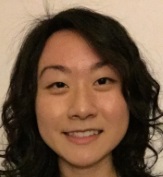AAYP 2016 Youth Ambassadors Scholarship

Sophia Zhao
The Asian American Dilemma of Our Time
“What’s your name?” my new friend asked me. There was a grin on his face.
“Sophia,” I promptly responded.
“What’s your real name?” my classmate urged.
“It’s Sophia.” What else would it be?
“No, it can’t be,” the boy exclaimed, frustration setting his eyes aglow, “because you’re Chinese. Chinese people can’t have American names!”
At that moment, there were a million things I could have done. I chose to plaster a smile onto my face and stammer out a few incoherent words.
The events of that day had left eight-year-old me dumbfounded. Now, however, I realize that although that had been my first experience with microaggressions—comments that unintentionally degrade marginalized groups—it would not be my last. As Asian Americans, we are familiar with microaggressions. We are plagued by questions such as “Where are you really from?” and “compliments” like “You speak English well—for an Oriental”. Please, continue doubting our citizenship and right to live in this country. Please, congratulate us some more on our near-perfect—but never quite good enough—assimilation into American culture. Yet we desperately cling onto the dream that maybe if we become “American enough”, they will no longer question our legitimacy; maybe if we become “American enough”, they will no longer see us as outsiders. And, we wonder if perhaps the key to becoming “American enough” is to fulfil the conventional stereotype of the Asian American set before us—the hardworking, obedient, and unquestioning worker and student.
So, we continue responding to microaggressions with uneasy smiles and quiet stammers. After all, this strategy has allowed Asian Americans to be the face of non-white socioeconomic success in America. We are the “model minority”, a label that serves as a double edged sword for the Asian American community. We are the racial class America holds as a trophy and tells other minority groups to aspire to. Yet we are also the racial class America expects to stay silent in the face of physical and psychological violence against our bodies and communities. This, however, cannot continue.
We cannot continue to grin hesitantly—a response that tells our peers we are eager to seek their Americanized approval. We cannot continue to brush off questions that drip with racism—a response that tells our peers it is okay for them to make assumptions about Asian American individuals based off of our heritage. We must, instead, speak out against microaggressions. We must be unafraid to question the racist assumptions behind our peers’ comments and inquiries. We must be unafraid to call out strangers and friends alike for their denigrating speech. But, above all, we must be unafraid to forgive and educate.
It would be easy to construct my classmate as a monster, with cruel words and equally cruel intentions. But, when I shut my eyes, I see a young child asking, “What’s your name?” Although my classmate’s words were unacceptable, he, like many others who spout microaggressions, was brought up in a culture that reproduces racial tropes and assumptions. So, instead of condemning our peers for their ignorance, we must help them recognize the racist underpinnings that guide their actions. We must be willing to forgive our peers, if they stumble in their journey to understand the consequences of their words. Only then can we hope to create a society free of racial prejudice.
On a personal level, my goal, as an Asian American high school debater, is to disrupt conventional notions of the Asian American experience and improve societal conditions for our community. In debate rounds, I will continue raising awareness regarding the intricacies of Asian American agency and advocating for the end of racial violence against our bodies. And, on a daily basis, I will continue questioning the assumptions behind comments and inquiries that degrade and homogenize the Asian American experience.
We came to America as workers in search of roads paved with gold. We came to America as immigrants in search of better lives for ourselves and for our families. Now, we are a thriving community with so much to offer. So let our voices ring loud and proud in the faces of those who seek to denigrate us.
